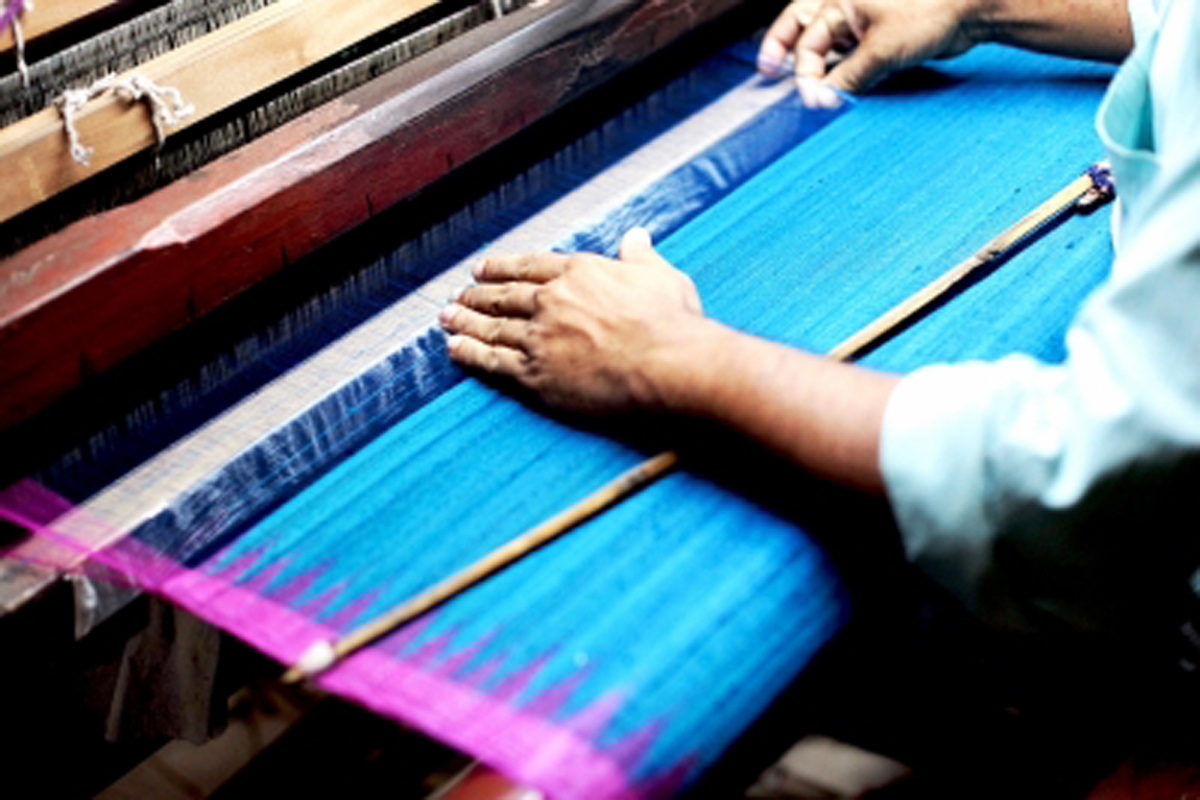VP Dhankhar predicts India will be third largest economy in 2 years
Speaking at the 10th National Handloom Day event, Dhankar described economic nationalism as fundamental to "our spinal economic growth and economic independence".
Celebrating the richness of Indian handlooms will only create a greater future for it and make the artistry thrive.

Photo: IANS
What makes India’s handloom textiles and craft heritage so exquisite is the diverse craftsmanship unique to each geographical community across the country. The intricacy and fine artistry of artisans and craftsmen remains unmatched in the world.
National Handloom Day 2021 honours the weavers across the country and showcases the legacy of the Indian handloom industry. It aims to revive the industry, increase awareness and increase the interest and contribution towards the socio-economic development of the weavers.
Advertisement
IANSlife spoke to a few designers who excel in this craft to find out their views on the future handloom.
Advertisement
Anavila Misra
My label’s core philosophy is “Mindful creation leads to mindful consumption”. In the year 2011 we launched the first handwoven linen sari and that created a disruption in the sari sector. We started on the premise of creating meaningful and contemporary fashion by utilising handlooms, handwoven fabrics and following the path of slow creation. We have been working with various artisan clusters and weavers from the very beginning and this relationship has evolved over the years.
Working with natural raw materials and creating value for all hands and minds involved in process leads to mindful creations. Creating sustainable employment is the core to our sustainability promise as a brand and we keep the framework of sustainability at the heart of our thinking and develop designs and processes which support this philosophy. Going forward, we want to continue creating greater value through our work for all the stakeholders including the consumers.
Ritu Kumar
I have been working with handlooms for over fifty years now, from my early days in Calcutta till today. When I started, I was deeply enamoured by the women who produced handloom, their dedication and skill, and I wanted to create a platform for them to showcase their wares. That ethos has remained at the crux of Ritu Kumar. Since then, we have worked with craftspeople from across the country, incorporating their different designs and fabrics into our design language. For example, we worked with the weavers of Banaras to weave special sarees and fabrics for Ritu Kumar as part of our revival project which spread over 2 to 3 years. We also regularly use 100 per cent muslin, the heritage fabric of India which is handwoven, known for its delicate finish. People want to wear and celebrate handloom — our journey is a testament to that fact.
We have also worked tirelessly to revive lost handicrafts — our country’s weaving community is large and in need of our help. To buy handloom and to support the weaving community is akin to supporting and sustaining a cornerstone of our culture.
Archana Jaju
Handlooms are the true portrayal of Indian culture and heritage. Indian handlooms are art which requires skilled craftsmanship and patience as it consists of intricate embroidery and embellishments.
My label attempts to keep its designs and handlooms organic and hence, works towards conserving and developing this craft more and more in each of my collections. My recent launch Revival’21 aims at embracing the beauty of nature through the use of Indian textile like chanderi. I also wish to revive various other handlooms such as Kanjeevaram, Venkatgiri, Banaras, Kota and Paithani one day.
The future for the Indian handloom, right now, seems glorious as the upcoming generation believes in the relevance of the organic rather than racing with the fast fashion and global trends. But we, as designers, have the responsibility to sustain the craft and the craftsmen by providing the recognition they deserve.
Ujjawal Dubey of Antar Agni
Handloom is the representation of the skills and artistry of the craftsmen which they have earned over the past many years. While awakening handloom has become the need of the hour, modernising and reinventing it has helped in reinstating its glory. At Antar Agni, we have always strived to constantly work with our artisans and learn from each other.
Designers, as people who work with these crafts, should try and work with the artisans to update the techniques as well the aesthetics. The idea of these contemporary creations by using traditional handlooms instills hope in us for a bright future of handlooms. It is important to not use handloom as charity but work on it to make it into a flourishing industry that is commercially beneficial to all, only then will it be able to survive, charity won’t last long. Celebrating the richness of Indian handlooms will only create a greater future for it and make the artistry thrive.
Advertisement